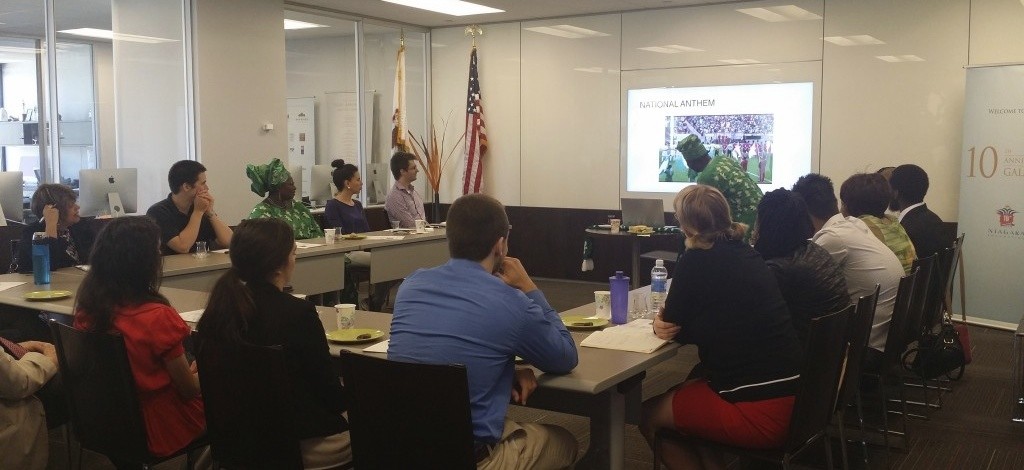By Justine Gustafson, Center for Public and Global Affairs Intern
July 31, 2015
As the largest economy in the region and the 7th most populous country in the world, Nigeria is known as the “Giant of Africa”. However, the previous British colony has not alway been the leader of the continent. With a rich history, and vibrant culture, Nigeria has moved from a diverse territory with over 200 hundred ethnic groups and 500 hundred languages to the Federal Republic of Nigeria, which although still a diverse country, is now a unified one as well.
On Thursday, July 30th, 2015, Niagara Foundation had the privilege of hosting a Friends & Faith event with Reverend Amos Oladipo. Oladipo was born and raised in a Christian home in Nigeria with familial roots in Islam. Reverend Oladipo enthusiastically began his discussion about his homeland by providing a basic introduction to the geography and history of Nigeria. Formerly a British Colony, Nigeria peacefully gained its independence on October 1st, 1960.The initial government that was established was very short lived lasting only six years and resulting in a coup d’etat. From 1967-1970, there emerged a civil war with back to back coups from multiple groups competing for power. Unfortunately, the civil war was followed by more unrest caused mostly by military juntas seizing power at various times until 1999 when Nigeria stabilized into the democratic system that still reigns today.
Reverent Oladipo’s extensive knowledge of his country did not end with politics and history. His discussion of Nigeria then moved towards the religion and culture of the people. He introduced Nigeria’s three main ethnic groups, the Hausa, the Igbo and the Yoruba. Interestingly, each group has their own set of customs and clothing, so much so that Nigerians can always tell where another one of the countrymen are from based on their specific garments.
The rich diversity of Nigeria’s people can also be seen in the multiple religions practiced. Oladipo emphasized that Nigerian people are extremely religious. In fact, if a person is sick, he joked, they are more likely to go to church than a hospital! Indeed, 50% of Nigeria’s population mostly in the north is Muslim, while 48%, mostly in the south, are various denominations of Christian. The other percent falling under the category of “other” often follow traditional Nigerian tribal religions. When asked if there was animosity between the different religious groups, Oladipo replied that for the most past there is peaceful religious co-existence. He provided his own family as an example. In his family, some of his uncles and aunts are Muslim while he and his parents are Christian, yet they are still one family. Intermarriage between religions is also not unheard of. However, he did point out that in the north there has arisen conflicts with the Islamic extremists Boko Haram, who want to institute an Islamic state throughout Nigeria. This according to Oladipo would never work in such a culturally and religiously diverse country.
Oladipo’s closing comments turned towards the future of Nigeria. When asked where he thought Nigeria would be in the next twenty years by an audience member, Oladipo optimistically asserted that with cooperation between Nigerian people, reduction of corruption in the government and economy and increased foreign investment, Nigeria will only become stronger and more influential in the continent of Africa and the world.

